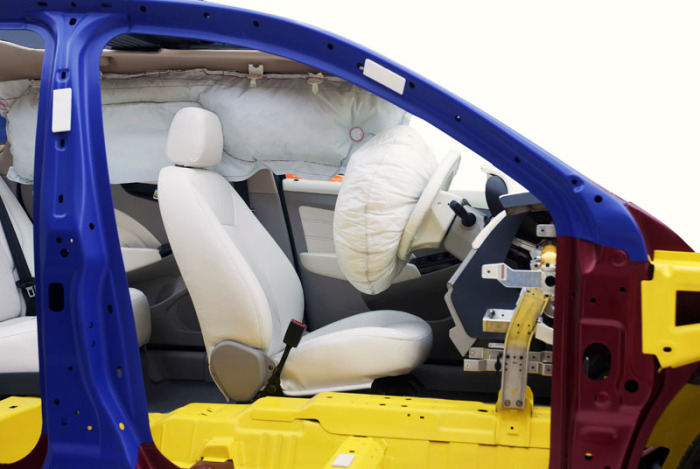Are Takata Vehicle Airbag Replacements Safe?
Japanese Company Says ‘Yes,’ While NHTSA ‘Continues To Examine the New Batch’
The jury is out on whether Takata’s replacement airbag systems are safer than the 17 million recalled for dangerously exploding inside the vehicle upon deployment.
The Japanese company that dominates the airbag market says the replacements are safe, despite the fact the same chemical triggering inflation of the recalled devices – ammonium nitrate – is being used in the new devices.
Ammonium nitrate is an odorless salt frequently used in fertilizers. Vegetable growers favor the substance because it gives plants an immediate food source. But it has its share of hazards.
According to The Fertilizer Institute, ammonium nitrate is an oxidizing agent that can ignite combustible materials, i.e., oil, paper and wood. The risk of fire is exacerbated by “extreme conditions of heat and pressure in a confined space.”
“Extreme conditions of heat and pressure in a confined space” is the definition of an airbag. So why is Takata still using it? Because it costs less than other compounds, according to a former Takata manager.
“Takata knew a long time ago that ammonium nitrate had some undesirable characteristics,” Scott Upham told USA Today.
The chemical is an ingredient in certain types of bombs and becomes unstable when its temperature reaches 100 degrees. My client, a resident of South Florida, where a car’s interior can become a 140-degree oven in the summertime, experienced a grotesque injury after the airbag in his 2003 Honda Civic blew apart. Broken pieces of metal within the defective device flew into his face and caused him to lose an eye.
In a properly working airbag, the chemical automatically charges when the sensor detects a crash. The charge produces a gas that inflates the airbag like a balloon, cushioning the blow. Then, the bag slowly deflates.
According to USA Today, National Highway Traffic Safety Administration Deputy Administrator David Friedman is satisfied about the integrity of the replacement airbags, although the agency “continues to examine the new batch to make sure the remedy is safe.”
Takata bases its statement that the replacements are safe on a design change that uses a lessened concentration of ammonium nitrate. Autoliv, Daicel and TRW Automotive, three of the company’s competitors, use a more-expensive chemical called guanidine nitrate.
Whether ammonium nitrate is the root cause of the airbag problem that has resulted in over 100 injuries and six deaths remains unknown. While Takata conducts tests to clear up the mystery – under NHTSA oversight – the automobile industry is doing tests of its own with the aid of an independent aerospace firm.
The 10 automakers that have recalled their vehicles for defective Takata airbags include BMW, Chevrolet, Chrysler, Ford, General Motors, Honda, Mazda, Mitsubishi, Nissan and Toyota. The models year affected are 2002 through 2008. For those whose vehicles have been recalled, the NHTSA produced a downloadable white paper titled “Vehicle Recalls: What You Should Know.”
Share This



